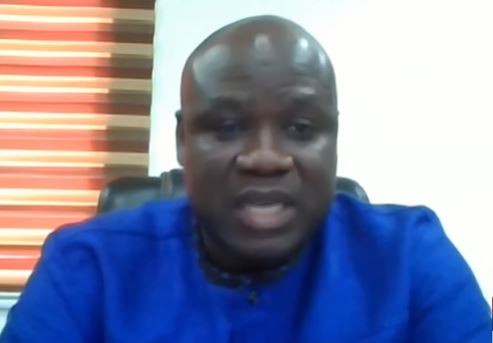The Chief Executive Officer of the Ghana National Chamber of Commerce and Industry (GNCCI), Mark Adu Aboagye, says he is not surprised at the departure of some international companies from Ghana.
He says his outfit had raised concerns about this reality a year ago, warning that unless the country addressed issues creating a hostile business environment, businesses would inevitably collapse and those who can afford pack out.
Speaking on JoyNews’ The Pulse on Thursday, May 9, Mr Aboagye said that international companies, like all businesses, prioritise profitability when establishing operations.
He emphasised that if operating costs outweigh potential profits due to factors like high operational expenses and exorbitant interest rates, it becomes economically impractical to remain in such an environment.
“Nobody sets up a business, especially for the international companies just for the fact that they just want to come to Ghana. They set up that business because they want to make profits because people have invested in the business and they have to give value for their shareholders. So they are looking for profit,” he said.
Mr Aboagye said that several other countries offer more favourable conditions for businesses, including lower interest rates and a more stable economic environment.
He highlighted Ghana's comparatively high interest rates, escalating utility costs, and the depreciation of the cedi against major currencies as significant challenges facing businesses.
“Our interest rate in Ghana at the moment is among the highest in the whole world. So if you are working in an environment like that and you need money to expand, you cannot get it so you go to where you can get the money.
“The cost of utility is also very high. Check electricity for instance, check water - we have had consistent increases in electricity and water and they all fit into the cost of doing business,” he said.
He added the cedi has depreciated close to about 15 per cent, noting that these international companies have "lost 15% of the money of the cedi if you want to convert it into dollars."
According to him, these businesses invest in dollars so when they want to pay money to their shareholders, they have to pay in dollars, hence when converting the cedis into dollars, they need more cedis to be able to get the dollar that they invested earlier.
Latest Stories
-
Commissioner of GRA’s Customs Division urges enhanced collaboration among security agencies
42 mins -
Brigadier General Ayorogo visits Ho Collection to strengthen border security and revenue Collection
55 mins -
Ho Sector Commander of Customs urges increased staffing to curb smuggling
1 hour -
KNUST SHS wins American Corner/ACE spoken word competition
1 hour -
UniMAC-IJ lecturer donates History books to Alma Mater, 2 other schools in Eastern Region
1 hour -
GNAT bares teeth at OSP, CAGD over ‘ghost names’ investigation
2 hours -
Fred Smith: The Day I met a Horny Gay!
2 hours -
India’s High Commissioner to Ghana engages with Volta GJA members to strengthen bilateral ties and business opportunities
2 hours -
Re: Government could not account for the Initial $200m GARID Project’s World Bank Credit Facility – Minority Members of Parliament
2 hours -
Bryan Acheampong winning SSNIT hotels bid amounts to conflict of interest – Azeem
3 hours -
I am music and music is me – Eno Barony
3 hours -
CK Akonnor appointed CAF technical advisor for youth players development
3 hours -
Government payroll sees GH¢34m savings as OSP and CAGD collaborate to remove ‘ghost names’
3 hours -
Big Chef Season 3: Six finalists re-enact traditional kitchen, cooking styles
3 hours -
BoG grants Zeepay approval for outbound money transfer
4 hours

